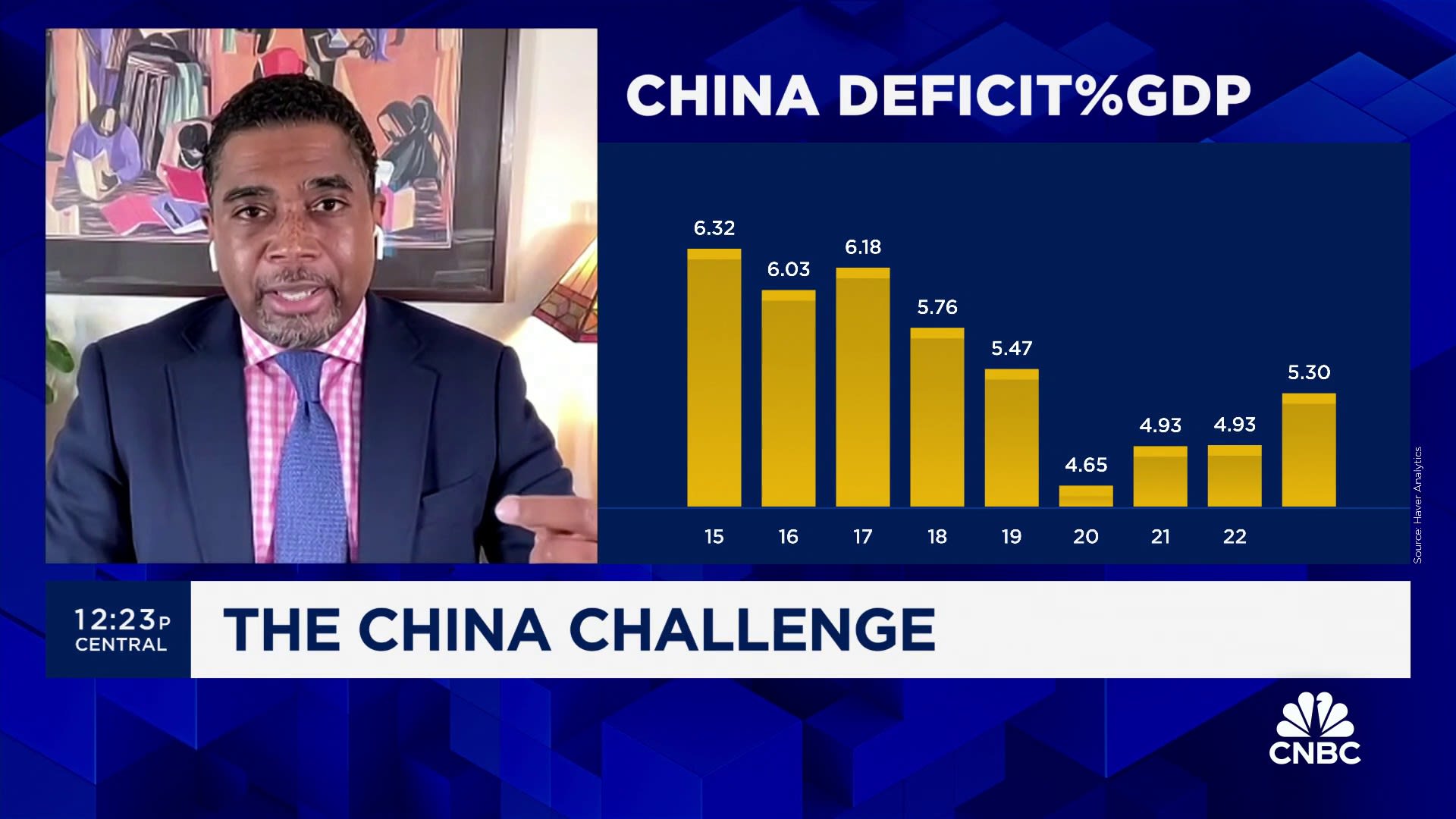NEW YORK, NY – SEPTEMBER 19: AMB. Bilahari Kausikan, Ministry of Foreign Affairs of Singapore speaks at The 2017 Concordia Annual Summit at Grand Hyatt New York on September 19, 2017 in New York City.
Paul Morigi | Getty Images Entertainment | Getty Images
While some may characterize tensions between the U.S. and China as a “new Cold War,” Bilahari Kausikan, Singapore’s former permanent representative to the United Nations, said the term was “misleading” and that the current situation only bears “superficial similarities to the U.S.-Soviet competition of [an] earlier era.”
Speaking at an outlook event held by private bank VP Bank on Wednesday, Kausikan explained that the Cold War, which ended with the collapse of the Soviet Union in 1991, was a competition between two systems organized on entirely different principles.
But that is not the case today, due to the complexity of modern supply chains. Kausikan said that both the U.S. and China are parts of a single global system, “and their competition is within a single system.”
“The U.S. and China are linked to each other, and to the rest of us, by a historically new phenomenon and that are supply chains of a complexity, of a density and of a scope never before seen in world history. And that what is what distinguishes 21st century interdependence from earlier periods of independence,” he said.
As such, he argued complete bifurcation is unlikely. While there could be some separation in areas like high technology and finance, Kausikan said it would not be a complete separation of ecosystems.
“In fact, I know of no business leader who actually believes this will happen,” he quipped.

Kausikan said the U.S. and Chinese governments are “uncomfortable” with the fact that they are unavoidably still dependent on each other. Furthermore, he thinks neither side’s attempts to mitigate this interdependence will be as successful as they hope.
“You can’t kill off your your your rival without killing yourself. You can’t even hurt your rival without hurting yourself,” he said.
‘Omnidirectional foreign policy’
In light of this environment, other nations have taken a different approach in what Kausikan calls an “omnidirectional foreign policy.”
“When we say we don’t want to choose, it doesn’t mean we’re going to stay passive, or try to be neutral, or try to be equidistant. What we mean is that we really want to choose according to our interests in different domains, and there’s no need to neatly line up all our ducks in one direction or another,” he explained.

Using Singapore as an example, Kausikan, who is also a former permanent secretary of the country’s foreign service, pointed out that the country has clearly chosen long ago in the direction of the U.S. in the defense and security domain.
The city-state is the only country in Southeast Asia to acquire the fifth generation F-35 fighter jet and most of its imported military equipment comes from the U.S. or traditional U.S. allies, such as the German Leopard 2 main battle tank and French-Italian Aster 30 air defense system.
Detachments from Singapore’s air force are also stationed in the U.S. for training and U.S. Navy ships are rotationally deployed to Singapore.
But Kausikan said while Singapore is aligned with the U.S. on issues in the defense and security domain, it may not on other issues.
In an interview with The Economist in May, then Deputy Prime Minister Lawrence Wong said Singapore was neither pro-America or pro-China, but “pro-Singapore.” Wong is now Singapore’s prime minister.
Kausikan also added, “As far as economic relations are concerned, we are completely promiscuous. [We] play with anybody wants to play with us, as long as there’s something in there for us,” he added, drawing laughter from attendees.
When asked how countries can navigate this environment, the former diplomat laid out three principles.
Countries need to firstly be aware of their interests, he said, they then have to have very clinical assessments of international relations, and most importantly, to be flexible and agile enough to seize opportunities or get out of harm’s way.
